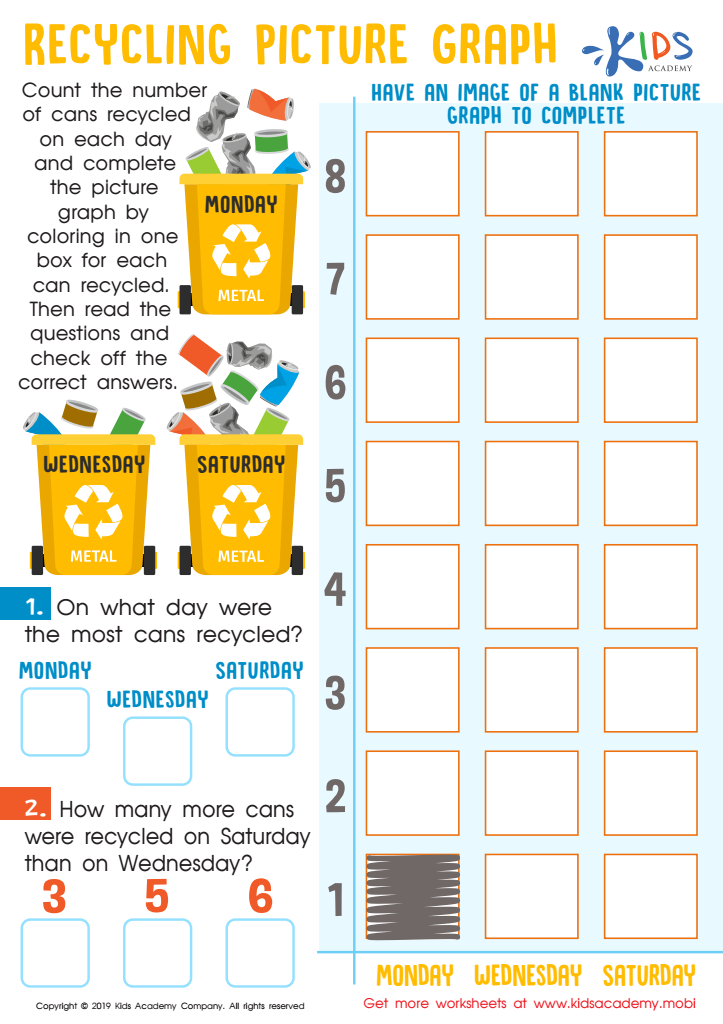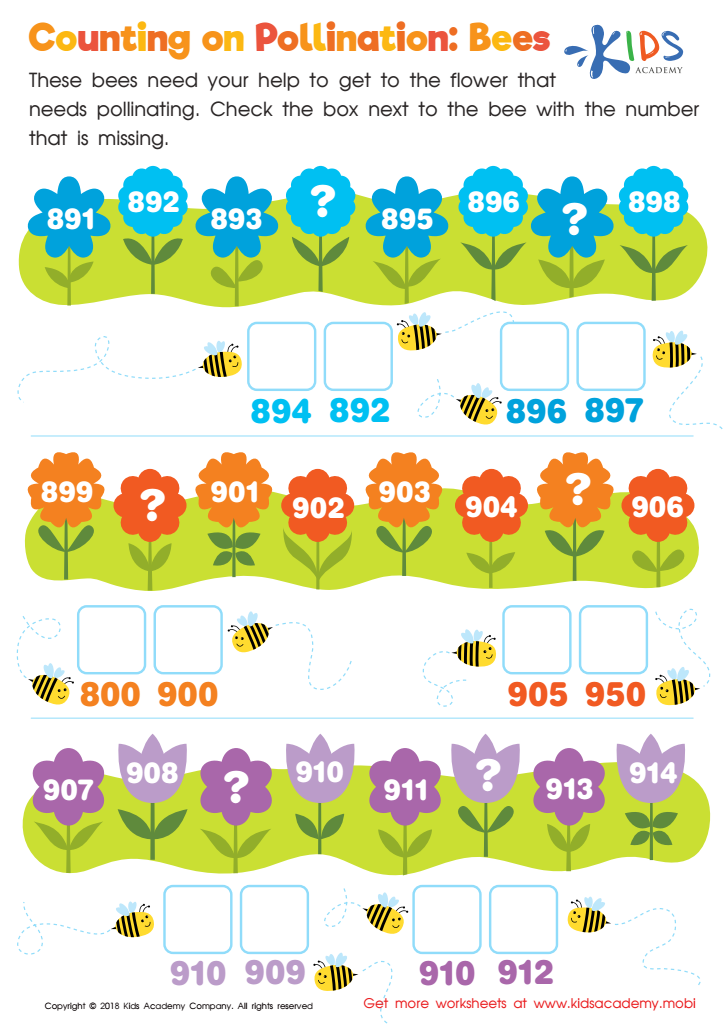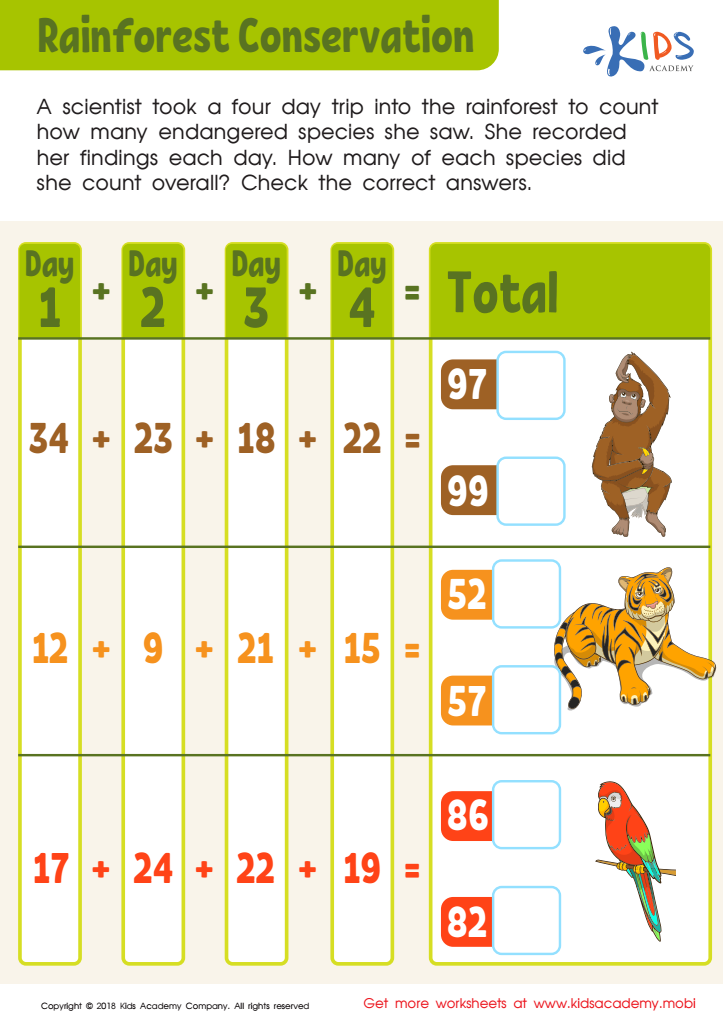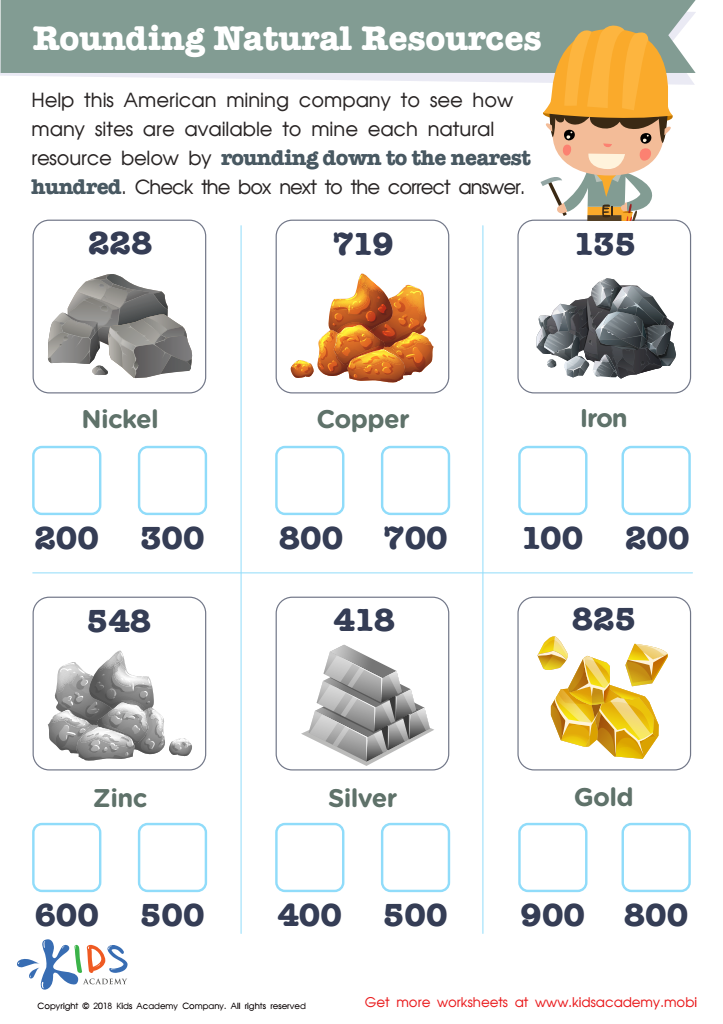Environmental awareness Math Worksheets for 8-Year-Olds
4 filtered results
-
From - To
Elevate your child's math skills and environmental consciousness with our engaging Environmental Awareness Math Worksheets for 8-Year-Olds. Each worksheet is designed to make learning fun while teaching crucial concepts like addition, subtraction, multiplication, and division, all through the lens of eco-friendly themes. Our activities incorporate real-world environmental issues such as recycling and conservation to develop both math proficiency and a sense of ecological responsibility. These printable worksheets offer a perfect blend of education and awareness, motivating young learners to make positive changes for a sustainable future. Make math meaningful with Kids Academy today!


Recycling Picture Graph Worksheet


Counting on Pollination: Bees Worksheet


Rainforest Conservation Worksheet


Rounding Natural Resources Worksheet
Environmental awareness and math skills can be powerfully interlinked for 8-year-olds, offering multiple developmental benefits. Parents and teachers should care about integrating these concepts because they foster an early understanding of how the world works and how children can positively impact their surroundings. Math is not just about numbers; it's about problem-solving, pattern recognition, and critical thinking, all of which are vital in learning about the environment.
When children use math to understand environmental issues, they learn to measure, compare, and analyze data, like tracking weather patterns or measuring growth in plants. These activities can make math feel more relevant and engaging. For example, calculating their carbon footprint or understanding recycling statistics can turn abstract numbers into tangible actions and promote eco-friendly behavior.
Moreover, insight into environmental issues helps instill a sense of responsibility and sustainability in young minds. Early introduction to these concepts can lead to lifelong habits that contribute to a healthier planet. As they grow, children who have a keen understanding of environmental issues and the numerical skills to analyze them are better equipped to tackle complex global challenges, making them conscientious and capable citizens in the future.
Incorporating environmental awareness into math lessons thus enriches education, making it holistic and meaningful, fostering both intellectual and ethical growth.

 Assign to My Students
Assign to My Students





















